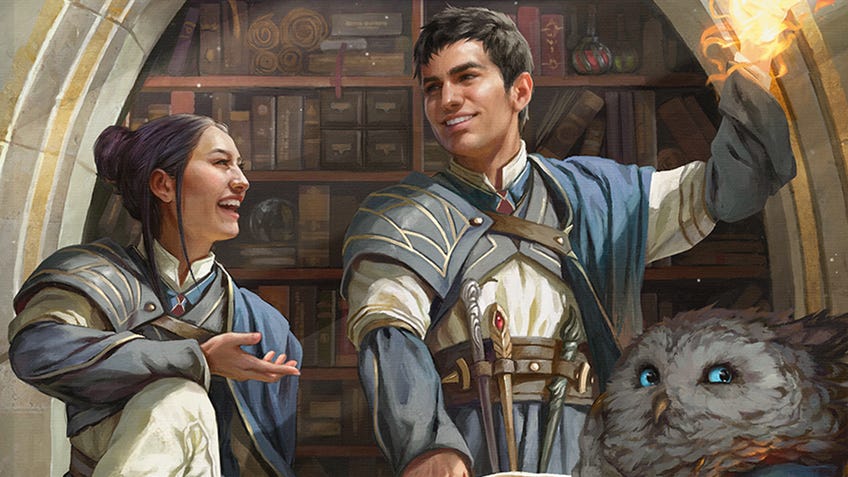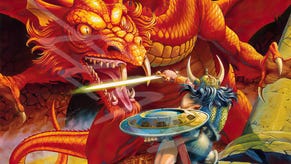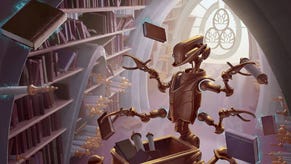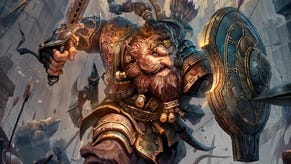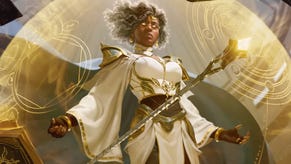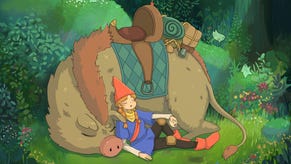What’s worse than D&D being everywhere? Shutting people down for enjoying it
Complaining about the RPG’s popularity can be more harmful than helpful.
There was once a time where the very notion of trying to convince your friends to play a tabletop RPG that wasn’t Dungeons & Dragons was almost laughable. The dominance the dragon game had over its competition was, for those who were less than enamoured with its limited scope and systems, pretty overwhelming and demotivating. It wasn’t long before then that even the very notion of getting your friends to play any roleplaying game became a herculean task.
Yet, after years of roleplaying games eking themselves into the public consciousness through pop culture, and changing trends in the perception of ‘the kinds of people who play these games’, it's now pretty safe to claim that tabletop roleplaying has decidedly become mainstream.
Every comedy show on Earth it seems has - at the very least - mentioned RPGs in some capacity through gags, characters and even whole episodes based around or inside worlds imagined by their ensemble cast.
YouTubers, streamers and social media influencers, from tiny, niche channels up to those with massive platforms, are playing, discussing and editorialising RPGs regardless of how far removed their channel’s original focus may be from tabletop gaming.
Some of the biggest shows on video game-dominated livestreaming platforms like Twitch are explicitly casts of professional roleplayers whacking goblins and rolling dice without a controller or RGB keyboard in sight. Not to mention that an animated series based on Critical Role’s first D&D campaign, The Legend of Vox Machina, released on Amazon Prime only a few short weeks ago.
One inescapable similarity that all of these mainstream showings of the roleplaying space had in common up until quite recently was the absolutely dogged loyalty they had to Wizards of the Coast’s flagship fantasy offering. We went from tabletop RPGs being virtually unknown outside of a fairly niche following to a slow and eventual dominant position among mainstream audiences that Dungeons & Dragons was the only pen-and-paper RPG that existed.
To this day, most of those with a casual perception of the tabletop roleplaying space won’t understand what you’re talking about when you say the word “TRPG” or “roleplaying game”. Unless they’re framed by their similarity or peership to D&D you may as well be speaking another language.
Most people with a casual perception of tabletop roleplaying won’t understand what you’re talking about when you say the word “TRPG”, but have heard of D&D.
Thankfully the winds are changing and, with larger actual play series and publications exploring the wide range of games that exist outside of the Forgotten Realms, we will likely see a surge of hungry new roleplayers wondering what waits for them outside of the Caves of Shadow they’ve been unknowingly trapped inside.
Even shows that have made their fortune off the back of D&D - such as The Adventure Zone - are stepping into uncharted territory and showing off much smaller titles like Monsterhearts, Kids on Brooms and the increasingly ever-present Honey Heist.
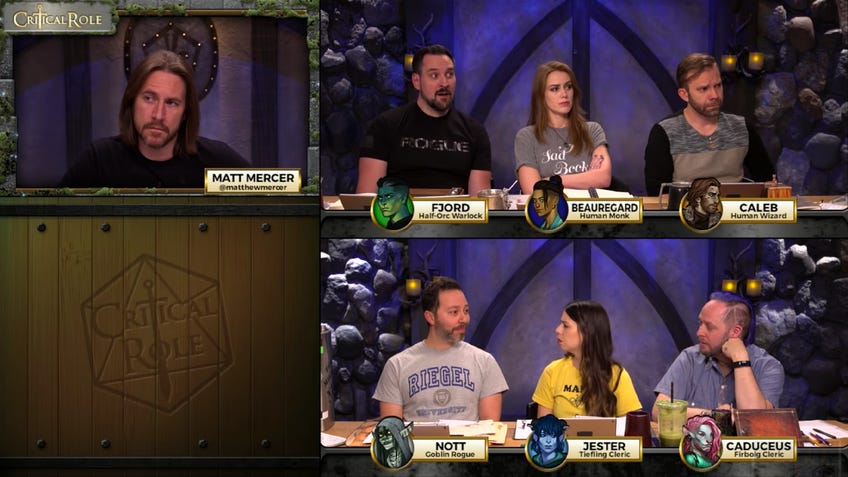
Meanwhile, as other options present themselves and the general tabletop roleplaying audience starts to mature, D&D has become the subject of more and more valid criticism. From its outdated views on race and gender - along with the shaky foundations both are built upon - to the clunky ruleset and backwards design, it’s not uncommon for any mention of the RPG behemoth to be met with groans and rolling eyes from those that are, frankly, sick at the sight of it.
But as public perceptions change and the slightly smug RPG players that have long evangelised the indie RPG offerings D&D players are now starting to discover (myself included) are getting their way, there’s a worrying trend among those really tuned into the hobby.
For some, to talk about D&D at all is almost a personal slight, even if you’re raising fair and valid criticism.
With oversaturation comes boredom and frustration - and the same is very much true for D&D. Articles, videos, news stories or what-have-you that even mention those two letters and an ampersand will face two distinct types of vitriol on social media:
The first is more a general problem; publish any kind of criticism of a popular IP, no matter how mild, and there’s the inevitable backlash from megafans who, in this hellish future we find ourselves in, seemingly stake their entire identities on corporate brands. (Side note: please don’t be this person.) “Just let people enjoy things!” is a perfectly good mantra, but it does need to be paired with “People are allowed to not enjoy things publicly” and “Criticism is good”.
The second type of backlash you face is more worrying: the anger that comes from those who are tired of D&D’s dominance themselves. For those detractors, it seems the content of articles and videos pertaining to the dungeon-crawling monolith is almost irrelevant. To talk about D&D at all is almost a personal slight, even if you’re raising fair and valid criticism. Even a discussion that ends with the resolution “You should play something else” can be lambasted with comments on social media of “Just don’t play D&D then!” from those that respond to the article’s headline rather than its content. (That’s a widespread problem and a habit I find myself slipping into as well.)
For those of us that don’t want to play Dungeons & Dragons, that are desperate for mainstream attention to be shifted toward other, more deserving games, there’s a tendency to just ignore the elephant in the room. To demand that we simply stop talking about it. But I’m not sure that helps.
The tabletop RPG market may well have made strides toward a post D&D-monolith culture, but we’re very much not out of the woods yet. Vast swathes of players still see D&D as the only valid option, still only consume D&D content and still refuse to try anything new.
For every ten roleplayers out there that have only ever known Dungeons & Dragons, you might get one mega-fan who’s Dragon-til-they-die, toxic obsession levels of invested - and probably isn’t going to be trying out a one-page indie journalling game any time soon.
But there are also the other nine players who just aren’t aware of the other options. As with any introduction to a new hobby - and likely similar to the ways in which they were introduced to D&D in the first place - you have to meet these players halfway. You do have to frame things in a way they understand from their limited experience, you do have to help them navigate the flaws of the game they’re playing and understand the choices they have outside of it. And a lot of the time that means you do have to talk about D&D.
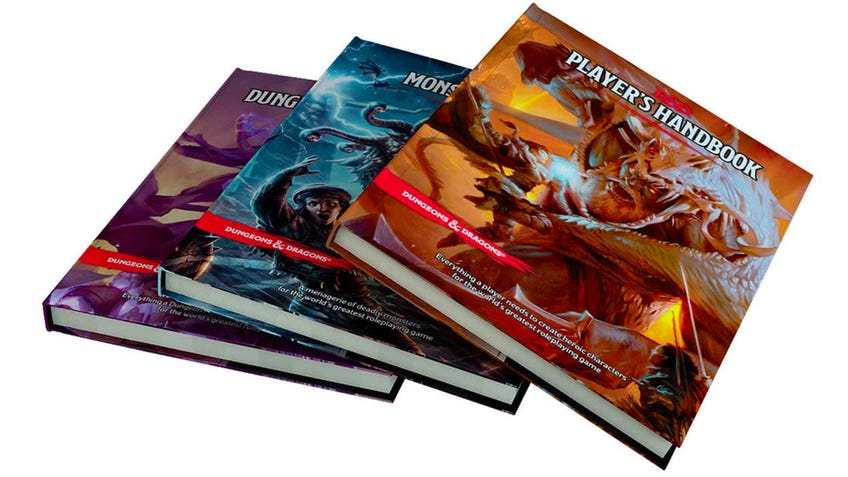
There’s a level of snobbery that I’m sure we’ve all partaken in when you’re in the know about something that a lot of people aren’t. I shudder to think of all the people I’ve turned away from the incredible games that exist out there because, instead of taking my time to explain to them why D&D doesn’t do it for me, I’ve just dismissively scoffed at the very mention of it. This isn’t exclusive to RPGs either; look at the way a lot of people sneer at those enjoying a game of Monopoly, or the frothing rage that capital-G Gamers have toward those innocently playing Candy Crush.
Sometimes our passionate drive to give more exposure to amazing, smaller games just dilutes into angry comments and even straight-up gatekeeping. I’m all for valid criticism and calling out large companies that make bad decisions - I would hope there’s enough examples on the Dicebreaker website and YouTube channel that demonstrate that - but whilst I’m desperate for more people out there to play literally anything that isn’t D&D, it’s going to take a lot more patience than we’re sometimes willing to give.
So you may see us talking about things through the lens of D&D. The biggest video we have on the Dicebreaker YouTube channel is us just recommending RPGs we like, but framed as ten RPGs that aren’t D&D. Part of that is obviously playing the YouTube game: if we put Dungeons & Dragons in the title, we get more views - and views keep the lights on. That’s just how it is. But that’s not the only factor. That video is our most-watched on the channel for a reason; because when people are looking to take their first steps away from D&D, when they’re bored of the same-old or are looking for something to play on top of their weekly session, they’re going to be looking for games like D&D.
So if you’re fan of RPGs - or maybe even if you design them - and someone asks you “Hey, is this game like D&D?” or “Why should I play this instead of D&D?”, at the very least try not to be a dick about it. If they’re not just being facetious themselves, answer those questions. There are a lot of people out there who genuinely want to know.
And if you are a Dungeons & Dragons fan who’s not really stepped out of the Forgotten Realms before and you want to just play D&D forever, that’s absolutely fine! You’re not hurting anyone. But if you’ve been questioning if it’s the right RPG for you, or if you’re unhappy with how Wizards of the Coast has been acting, there’s a wonderful world of amazing tabletop RPGs that aren't D&D out there just waiting for you to discover them. One is probably the perfect fit for the kind of roleplaying you enjoy. Have a look around, get recommendations from people like us or your friends or RPG players you know and trust and care about. Ultimately, just do - and play - whatever makes you happy.
